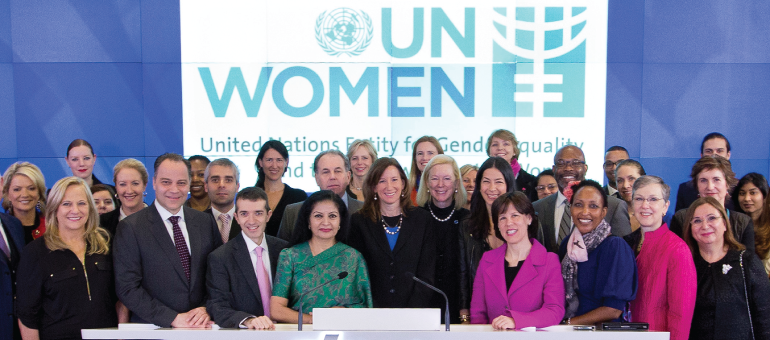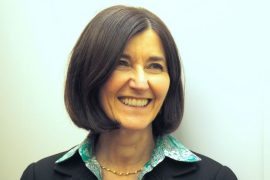The sun rose over New York on October 24, 2025, illuminating the iconic United Nations headquarters draped in blue and white, symbols of peace and unity. But this year’s celebration carried deeper meaning: the UN marked its 80th anniversary under the theme, “Promoting Peace, Unity, and Global Partnerships.” Amid the speeches and reflections, one truth resonated louder than ever: peace, unity, and global progress cannot flourish without women at the center.
From the dusty streets of Sudan to the digital labs of Singapore, women continue to stand as quiet architects of hope, mediating conflicts, pioneering innovations, leading humanitarian responses, and shaping the moral compass of governance. The world may celebrate the UN’s enduring mission, but its greatest measure of success lies in how well it empowers women to lead the charge for justice and peace.
Eighty Years of Promise: From “We the Peoples” to “We the Women”
When the United Nations Charter came into force on October 24, 1945, it carried the immortal pledge: “We the Peoples of the United Nations determined to save succeeding generations from the scourge of war.” Yet, at that time, women were barely visible in political or diplomatic spaces.
Eight decades later, the transformation is striking. Women now lead nations, negotiate ceasefires, and command peacekeeping operations. The UN’s frameworks, from the Universal Declaration of Human Rights to Resolution 1325 on Women, Peace, and Security, have institutionalized gender equality as a core pillar of sustainable development.
But the work is far from done. The 80th anniversary of the UN and the 25th anniversary of Resolution 1325 serve as twin reminders that while the foundation is strong, the global edifice of equality is still under construction.
The Women Who Built the UN’s Peace Legacy
Throughout history, women have been at the forefront of the UN’s moral conscience. Eleanor Roosevelt chaired the committee that drafted the Universal Declaration of Human Rights. In Africa, pioneers like Graça Machel, Ellen Johnson Sirleaf, and Wangari Maathai embodied the UN’s mission through advocacy, governance, and environmental stewardship.
In Asia, figures like Malala Yousafzai and Sri Mulyani Indrawati continue to champion education and inclusive economics, while in Europe and the Americas, leaders like Michelle Bachelet and Mary Robinson have shaped the global human rights agenda.
These trailblazers have shown that when women lead, humanity prospers, and that the future of peace lies not in the boardrooms of bureaucracy, but in the hands of those who nurture societies from the ground up.
Peace, Unity, and the Gender Equation
The theme of United Nations Day 2025, “Promoting Peace, Unity, and Global Partnerships” is not merely aspirational; it is a moral imperative.
Today, women represent less than 27% of global parliamentary seats, and their participation in formal peace negotiations rarely exceeds 13%. Yet research proves that peace agreements are 35% more likely to last when women are involved in negotiation and implementation.
Through initiatives like the Elsie Initiative Fund, which supports women’s recruitment in peacekeeping operations across 15 countries, and UN Women’s global campaigns for inclusivity, the UN is reinforcing one truth: peace without women is incomplete, and unity without inclusion is unstable.
In Mali, South Sudan, and the Democratic Republic of Congo, female peacekeepers are redefining mission success by building community trust and preventing gender-based violence. Their courage echoes across continents, symbolizing the UN’s enduring belief that security is strongest when shared equally.
Beijing+30 and the Renewed Push for Equality
As the world prepares to mark 30 years since the Beijing Declaration and Platform for Action (1995–2025), the most progressive blueprint for women’s rights, the United Nations is re-examining progress through its Beijing+30 Priority Actions Dashboard.
This global mechanism tracks government commitments to gender equality and social accountability. Since 2010, National Action Plans on Women, Peace, and Security have risen from 19 to 112, proving that advocacy has evolved into action.
The challenge, however, lies in implementation. Many countries face funding shortfalls, data gaps, and sociopolitical resistance that hinder gender progress. Yet women’s networks across Africa, Latin America, and Asia are mobilizing like never before, leveraging digital tools, cross-border partnerships, and community resilience to ensure that Beijing’s vision of empowerment does not fade into history.
Women’s Partnerships That Power Change
Across the globe, women are redefining what it means to partner for peace. The Spotlight Initiative, a collaboration between the UN and the European Union, has doubled conviction rates for gender-based violence in 13 countries, a milestone proving that global partnerships work best when women lead them.
In Africa, the UNECA regional forum in Addis Ababa is amplifying women’s voices in counter-terrorism and peacebuilding, while UN Women Malawi highlights women driving climate-smart innovation. Meanwhile, in Asia, women technologists are contributing to the Global Digital Compact, ensuring ethical AI systems reflect gender balance.
Even in crisis zones like Gaza, Sudan, and Ukraine, women remain the lifeline, bearing 70% of humanitarian burdens yet leading 80% of recovery and survivor programs. Their strength affirms a timeless truth: even in the darkest moments, women light the path forward.
Global Voices, One Hashtag: #WomenForUN80
Social media has become a global stage for unity. This year’s digital campaign, #WomenForUN80, has galvanized millions of posts across X, Instagram, and TikTok — all celebrating the leadership, resilience, and vision of women.
From Namibia, where UNDP celebrates women’s role in climate resilience, to India’s Pink Shakti Initiative, which declared, “Empowering women means empowering humanity,” the global message is clear: equality is not a Western ideal, it is a universal right.
In Ghana, reform movements are demanding more women in peacebuilding. In Cameroon, programs treating malnutrition among 185,000 women and children are reshaping health systems. From Albania to Argentina, the story is the same, when women unite, progress accelerates.
Persistent Gaps, Emerging Hopes
Despite progress, stark realities persist. Gender-based violence continues to affect one in three women worldwide. In global governance, economic recovery, and technology, the gender divide remains wide. Yet, 2025 also presents opportunities.
The UN80 Initiative and the Global Digital Compact aim to include women in AI ethics and quantum governance, ensuring future technologies uphold fairness and representation. Secretary-General António Guterres has repeatedly emphasized: “When we realize the vision of the Beijing Declaration, we march forward — for every woman, for every girl.”
That march, though incomplete, is gathering momentum.
Amazons Watch Magazine’s Call to Global Leadership
As the world marks United Nations Day 2025, Amazons Watch Magazine joins the global community in reaffirming the belief that true peace begins when women are counted, heard, and empowered.
We call upon governments, international organizations, and civil society to act decisively:
- Invest in women’s leadership in diplomacy, technology, and governance.
- Protect and fund women-led peacebuilding initiatives in conflict-affected regions.
- Champion girls’ education as the cornerstone of global partnerships and sustainable development.
- Ensure that women human rights defenders are safeguarded, recognized, and supported in every nation.
This is not a plea for inclusion; it is a demand for justice. The progress of nations depends on the power, participation, and protection of women everywhere.
A Promise Renewed: Women as the Heartbeat of Humanity
The story of the United Nations began as a quest for peace. Today, that peace beats strongest in the hearts of women, in every refugee camp, every classroom, every government office, and every movement for justice.
As we celebrate 80 years of the United Nations, let us honor not only the institution’s history but also its living legacy, the women who carry its mission into the future. From the villages of Africa to the capitals of Europe, from the slums of Asia to the cities of the Americas, women are proving that peace is not an event but a practice, and unity is not a dream but a duty.
Amazons Watch Magazine calls on global leaders, policy-makers, and citizens alike:
Let us recommit to a world where every woman’s voice is valued, every girl’s dream is nurtured, and every partnership uplifts equality.
Because the question of our century is no longer whether women belong at the table, it is whether peace can exist without them and, the answer, as history continues to prove, is a resounding no.





Comments are closed.